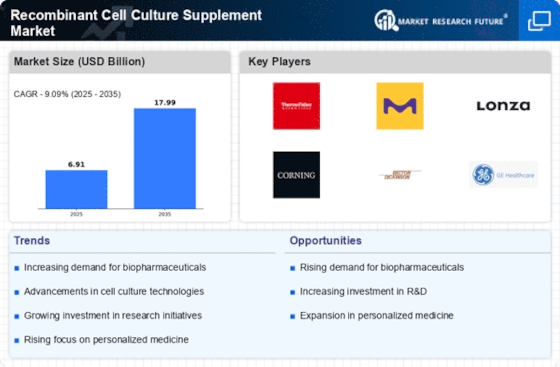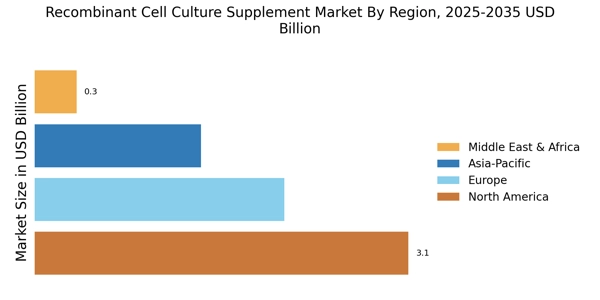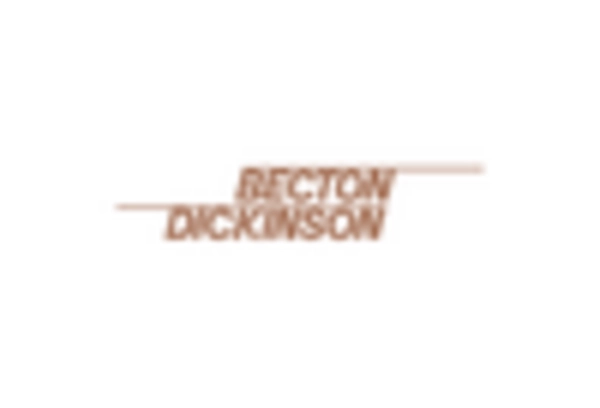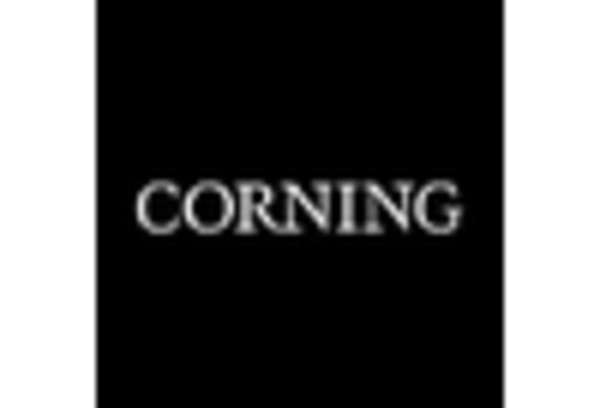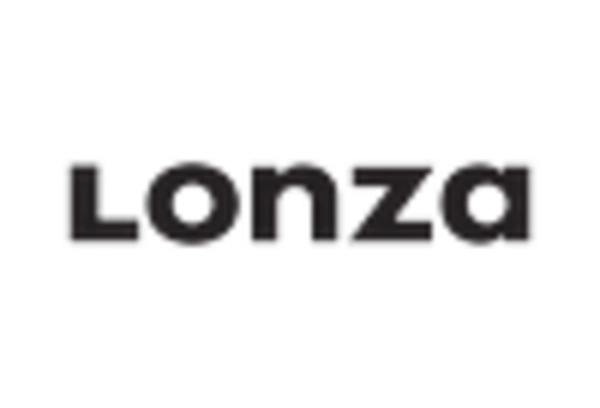Rising Demand for Biopharmaceuticals
The recombinant cell culture supplement Market is experiencing a notable surge in demand for biopharmaceuticals. This trend is largely driven by the increasing prevalence of chronic diseases and the growing need for innovative therapies. According to recent data, the biopharmaceutical sector is projected to reach a valuation of over 500 billion USD by 2026, indicating a robust growth trajectory. As biopharmaceutical companies seek to enhance production efficiency and product quality, the reliance on recombinant cell culture supplements becomes paramount. These supplements facilitate optimal cell growth and productivity, thereby supporting the development of complex biologics. Consequently, the rising demand for biopharmaceuticals is a significant driver for the Recombinant Cell Culture Supplement Market, as it underscores the necessity for advanced cell culture technologies.
Advancements in Personalized Medicine
The shift towards personalized medicine is profoundly influencing the Recombinant Cell Culture Supplement Market. As healthcare moves towards tailored therapies, the need for specific cell culture conditions that mimic individual patient profiles becomes increasingly critical. This trend is supported by the growing understanding of genetic variations and their impact on drug efficacy. The market for personalized medicine is anticipated to exceed 2 trillion USD by 2030, highlighting the potential for recombinant cell culture supplements to play a vital role in this evolution. These supplements enable researchers to create customized cell lines that can be used for drug testing and development, thereby enhancing the precision of therapeutic interventions. Thus, the advancements in personalized medicine serve as a compelling driver for the Recombinant Cell Culture Supplement Market, fostering innovation and growth.
Growing Focus on Cell-Based Therapies
The growing emphasis on cell-based therapies is a pivotal driver for the Recombinant Cell Culture Supplement Market. As the healthcare landscape evolves, there is a marked shift towards therapies that utilize living cells to treat diseases, particularly in oncology and regenerative medicine. The market for cell-based therapies is projected to surpass 100 billion USD by 2027, indicating a robust growth potential. Recombinant cell culture supplements are essential for the successful development and production of these therapies, as they provide the necessary nutrients and growth factors to support cell viability and function. This increasing focus on cell-based therapies not only propels the demand for recombinant cell culture supplements but also highlights their critical role in advancing therapeutic options for patients.
Increased Investment in Biotechnology
The Recombinant Cell Culture Supplement Market is benefiting from a surge in investment within the biotechnology sector. Venture capital funding and government grants are increasingly directed towards biotechnological research and development, particularly in areas such as gene therapy and regenerative medicine. Recent statistics indicate that biotechnology investments have reached over 80 billion USD in the past year, reflecting a strong commitment to advancing biopharmaceutical innovations. This influx of capital is likely to enhance the development and commercialization of recombinant cell culture supplements, as companies seek to optimize their production processes. The increased investment in biotechnology not only supports the growth of the Recombinant Cell Culture Supplement Market but also encourages collaboration between academia and industry, fostering a vibrant ecosystem for innovation.
Technological Innovations in Cell Culture
Technological advancements are reshaping the landscape of the Recombinant Cell Culture Supplement Market. Innovations such as automated cell culture systems, bioreactors, and advanced media formulations are enhancing the efficiency and scalability of cell culture processes. The integration of artificial intelligence and machine learning in cell culture techniques is also gaining traction, allowing for more precise control over growth conditions. As a result, the market for cell culture technologies is projected to grow at a CAGR of approximately 10% over the next five years. These technological innovations not only improve productivity but also reduce costs associated with cell culture, making recombinant cell culture supplements more accessible to researchers and manufacturers. Therefore, the ongoing technological advancements represent a significant driver for the Recombinant Cell Culture Supplement Market, fostering a more efficient and effective research environment.


